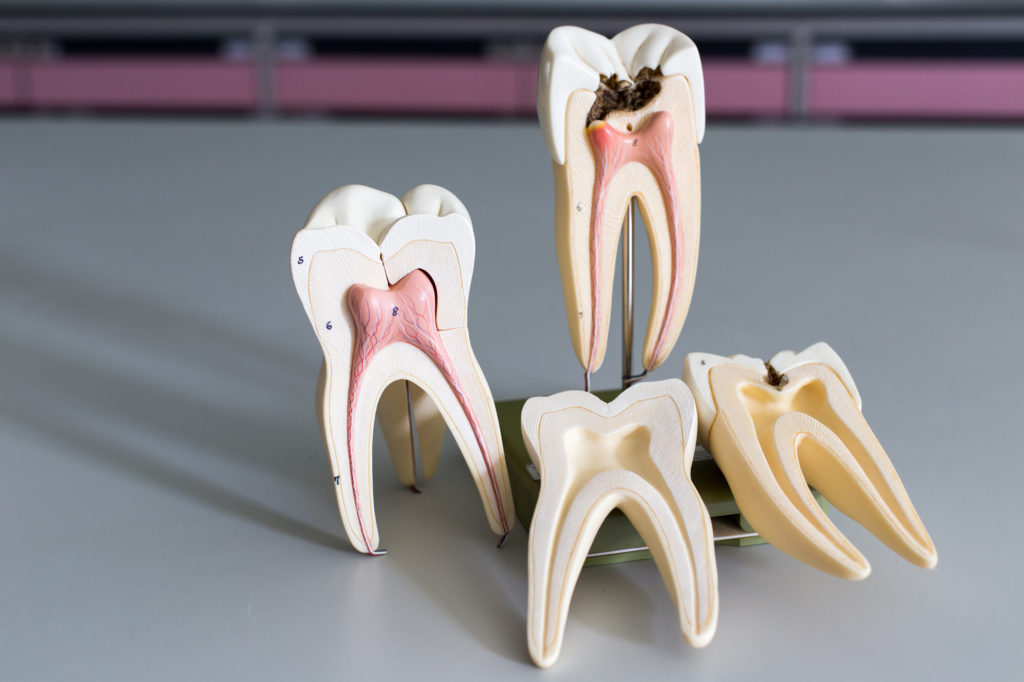
You’ve been dealing with persistent tooth pain for quite some time. Your days have been filled with sensitivity to extreme temperatures, swollen gums, and deep decay.
You did the best thing for your dental health and scheduled a root canal with the best dentist in Houston to treat the infection. You’ve saved your natural teeth and avoided costly tooth extraction and replacement.
Now it’s more important than ever to protect yourself from future infection and perform your root canal recovery properly. Memorial Dentists can answer your questions about root canal recovery time and process to ease your worries pre-procedure.
A Root Canal Process Overview
If you have an infected root, your dentist may recommend a root canal procedure as opposed to tooth extraction in order to save your natural tooth.
Most often a root canal is a result of tooth decay, a leaking filling, or a recent trauma to a tooth such as a chip. Signs that you may require a root canal include sensitivity to hot and cold foods and drinks, pain when biting, a loose tooth, gum swelling.
It’s of the utmost importance that you get an infected root canal treated. The infection can cause an abscessed tooth, swelling of the neck and head, or even bone loss at the tip of the tooth.
After making a consultation, your dentist will first do a thorough examination including an x-ray to determine if a root canal is the best option for you.
If you decide to move forward with a root canal, the dentist applies a local anesthetic and protective sheet. More apprehensive patients can request complete sedation for the duration of the procedure.
The dentist will drill to create access to the inside of the tooth and relieve pressure. This makes it possible to clean out the pulp chamber of the tooth where the infected soft tissue is.
The pulp chamber is filled with a rubbery material called gutta-percha to prevent future infection. The dentist will apply a temporary filling to later be replaced with a permanent filling or a crown.
Root Canal Recovery
The steps for recovery from your root canal involve mostly relaxing on your part and are very simple:
Directly after your treatment, the pain caused by your infection will be alleviated, but you will experience numbness for a few hours. While your mouth remains numb, avoid hard foods and hot drinks. Relax for the rest of the day.
Most patients are able to return to their normal activities the following day. However, you may experience some tooth sensitivity for the following few days.
You may also find that you’re tired from surgery. If you need a little more rest (including naps) in the first day or too following the procedure, don’t worry about it.
To treat swelling for the first couple of days, keep your head elevated during your sleep and apply an ice pack as needed.
During this time, to avoid discomfort and to minimize chewing, you should stick to eating soft foods such as yogurt, apple sauce, or mashed potatoes. If you must chew, try to keep it to the side of your mouth where you did not have the root canal. Chewing on the affected tooth can lead to re-contamination and breakage.
Over-the-counter pain killers such as ibuprofen can be taken to alleviate pain, or your dentist may prescribe something stronger if he feels you’ll need it.
Even if you start to feel better, stay away from vigorous exercise for a few days. Over-exerting yourself can lead to more aches. If you must exercise, try a gentle walk!
Keep an eye on how your crown fits. If it feels uncomfortable or misplaced, let your dentist know so that it can be fixed.
The most important aspect of root canal recovery is keeping the area clean. Continue to gently brush your teeth twice a day and floss once to prevent infection to the operation site.
If your pain or swelling worsens in the days following your procedure, contact your dentist right away. This may be a sign that the tooth is cracked, a new infection, or the pulp not being entirely removed.
Preventing Future Root Canals
In order to prevent another root canal, keep your teeth clean. Brush for two minutes twice a day (once before bed) with fluoride toothpaste. Floss regularly, and consider using a mouthwash after lunch.
Another great way to prevent future root canals is to cut sugary foods out of your diet. The bacteria in your mouth will leave behind acid as they break down sugars left on your teeth which results in tooth decay. A healthy diet is a great way to keep your teeth safe.
Give up smoking if you’re a smoker. Smoking is a major cause of gum disease in the U.S.
Find a family dentistry practice that meets your needs, and make regular appointments with them. Most dentists recommend getting your teeth professionally cleaned every six months.
Feel Confident in Your Root Canal
With the right dentist, your root canal should be a simple procedure and a huge relief. You can go from sensitivity and pain to a beautiful new smile and a comfortable mouth.
Be sure to rest after your procedure for a day, and avoid hard foods for as long as you still feel pain. Going forward keep a close eye on your oral hygiene to avoid future issues.
If you think that you may need a root canal, cosmetic dentistry, or dental implants contact us for a consultation or cleaning appointment. Our on-site chat tool makes it a breeze.

